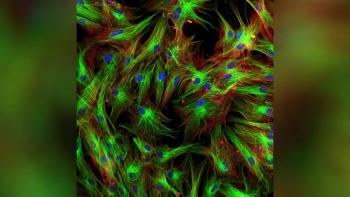
These therapies may provide more stable treatments than stem cell therapies.

These therapies may provide more stable treatments than stem cell therapies.

An interactive training program designed “to help patient advocates better influence decisions related to access to new medicines” was launched today by Eli Lilly.

The approval last year of Johnson & Johnson’s (J&J) treatment for tuberculosis (bedaquiline) - at the time the first TB drug approval in 40 years - “remains an exception to the generally gloomy outlook” for investment in TB R&D, writes Andrew Ward in this week’s Financial Times.

European physicians have insufficient knowledge of biosimilars, according to a survey carried out by the Alliance for Safe Biologic Medicines (ASBM).

Supply chains risks in China still include extremely high levels of corruption, environmental pollution issues and slow working conditions reforms, according to new analysis from Sedex.

The European Medicines Agency’s (EMA) Committee for Medicinal Products for Human Use (CHMP) has recommended marketing authorization for Sylvant (siltuximab) for adult patients with multicentric Castleman’s disease.

Japan’s schizophrenia treatment market value will see revenues doubling from $0.7 billion in 2012 to $1.4 billion by 2022 (a Compound Annual Growth Rate [CAGR] of 7.74%), says a new report from GlobalData.

Dr. Karen Midthun, director of FDA’s Center for Biologics Evaluation and Research, outlined the importance of the Department of Health and Human Services (HHS) National Vaccine Plan, in a FDA blog on March 11, 2014.

The Asia-Pacific (APAC) region is experiencing a significant boom in the volume of private equity and venture capital investments in biotechnology.

Swedish Orphan Biovitrum AB (Sobi) was last night presented with a EURORDIS Award for its commercial and development portfolio in the field of rare diseases.

Following the U.S. ban on all imports from Ranbaxy’s Toansa, India, facility, the drug maker has voluntarily suspended all shipments of bulk drugs from its manufacturing facilities both at Toansa and Dewas, in order to reassess quality controls at the plants.

New research from Frost & Sullivan reveals that the global biosimilars market earned revenue of about $1.2 billion in 2013 and could reach $24 billion in 2019.

The gastrointestinal (GI) therapeutics market for Irritable Bowel Syndrome (IBS), Ulcerative Colitis (UC) and Crohn’s Disease (CD) in the Asia-Pacific (APAC) region will increase in value from $564m in 2012 to $784m by 2019 (a CAGR of 4.8%).

FDA has reported that it notified Ranbaxy Laboratories, Ltd., on Jan. 23 that it is prohibited from manufacturing and distributing active pharmaceutical ingredients (APIs) from its facility in Toansa, India, for FDA-regulated drug products.

Published: March 25th 2014 | Updated: November 15th 2020

Published: March 24th 2014 | Updated: November 15th 2020

Published: March 20th 2014 | Updated: November 15th 2020

Published: March 20th 2014 | Updated: November 15th 2020

Published: March 20th 2014 | Updated: November 15th 2020

Published: March 11th 2014 | Updated: November 15th 2020